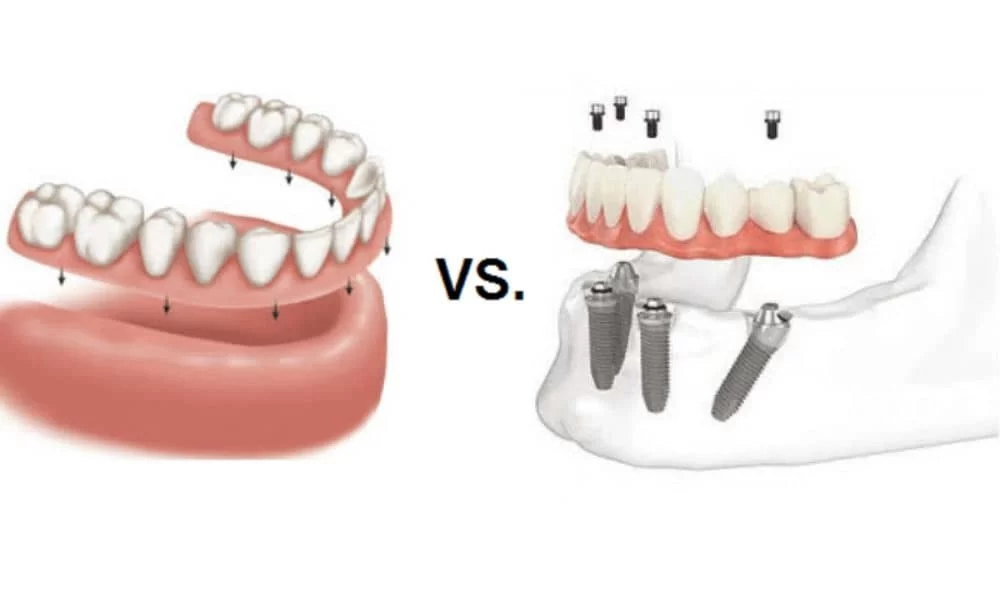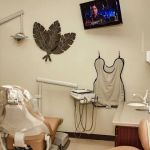
The Cost of Dental Implants Versus Dentures
When faced with the decision of replacing missing teeth, many individuals wonder which option—dental implants or dentures—is the most cost-effective choice. As someone who has gone through the process of choosing between these two solutions, I can understand how confusing it can be. Both dental implants and dentures offer benefits for people with missing teeth, but they come with different costs, longevity, and maintenance requirements. In this article, I'll share my experience and break down the costs associated with dental implants and dentures, so you can make an informed decision based on your personal needs and budget.
1. Understanding Dental Implants
Dental implants are a modern solution for replacing missing teeth. Unlike dentures, which rest on the gums, dental implants are surgically placed into the jawbone, where they act as a foundation for replacement teeth. The implant process involves several steps, starting with a consultation with a dentist, followed by the surgical placement of the implant, and then the attachment of a crown or bridge to the implant. While this procedure can take several months to complete, the results are often long-lasting and highly effective at restoring both the function and appearance of missing teeth.
In my experience, dental implants have a more permanent feel than dentures, since they are securely attached to the jawbone and don’t shift like traditional dentures. This permanence makes them an attractive option for many people, especially those who are tired of dealing with the potential discomfort or inconvenience of dentures. However, the cost of dental implants can be a significant factor to consider when weighing your options.
2. The Cost of Dental Implants
The cost of dental implants can vary widely based on several factors, including the number of teeth that need to be replaced, the type of implant used, and the geographic location of the dental office. On average, the cost of a single dental implant in the U.S. ranges from $3,000 to $4,500 per implant. This price typically includes the implant itself, the crown that is attached to the implant, and any necessary surgical procedures.
If you need multiple implants, the total cost can add up quickly. For example, replacing an entire row of teeth could cost upwards of $20,000 to $30,000 or more. Keep in mind that dental insurance often does not cover implants, or may only cover a portion of the cost, meaning you will likely have to pay out-of-pocket for a significant portion of the procedure. However, many dental offices offer payment plans, and there are also financing options available to make implants more affordable over time.
While the initial cost may seem high, dental implants are designed to last a lifetime with proper care. This longevity can make implants a cost-effective choice in the long run, especially when compared to dentures, which need to be replaced more frequently.
3. Understanding Dentures
Dentures are a more traditional solution for replacing missing teeth. They are removable prosthetics that rest on the gums and can replace a full set of teeth (complete dentures) or just a few missing teeth (partial dentures). Dentures are generally made from acrylic or a combination of acrylic and metal, and they are custom-designed to fit the patient's mouth. While dentures can improve the appearance and function of your teeth, they are not a permanent solution like dental implants.
Personally, I have had experience with both dentures and dental implants, and I’ve found that dentures can take some getting used to. While they can be comfortable, they do have a tendency to shift or slip, especially while eating or speaking. Additionally, dentures need to be removed and cleaned regularly, which can be an inconvenience for some people. Despite these drawbacks, dentures remain a popular and affordable option for those seeking a solution for missing teeth.
4. The Cost of Dentures
The cost of dentures is generally much lower than dental implants, which makes them an appealing option for people on a budget. On average, complete dentures can cost between $1,000 and $3,000 for a full set, while partial dentures typically range from $500 to $1,500. This price often includes the consultation, fitting, and the dentures themselves. However, keep in mind that these prices can vary depending on the quality of the materials used, the dental office's location, and the level of customization required.
Another factor to consider is that dentures usually require more maintenance than dental implants. For instance, you may need to replace your dentures every 5 to 7 years, depending on wear and tear. Additionally, if your dentures don’t fit properly or start to lose their shape over time, adjustments and relining may be necessary. These costs can add up over time, potentially making dentures more expensive in the long run than initially anticipated.
5. Longevity and Maintenance: Implants vs. Dentures
One of the key factors in deciding between dental implants and dentures is the longevity and maintenance required for each option. Dental implants are designed to be a permanent solution, and with proper care, they can last a lifetime. Once the implants are placed and the crowns are attached, there is little maintenance required beyond regular brushing, flossing, and visits to the dentist for check-ups.
On the other hand, dentures are not permanent and typically need to be replaced every 5 to 7 years, depending on how well they fit and how often they are used. This replacement cost can be significant over time, especially if you need to replace your dentures multiple times throughout your life. Additionally, dentures require daily care, including cleaning and soaking overnight to maintain their shape and hygiene. If your dentures become damaged or lose their fit, adjustments may be necessary, leading to additional costs.
6. Which Option Is Right for You? Factors to Consider
Choosing between dental implants and dentures is a highly personal decision that depends on several factors. If you’re looking for a long-term, permanent solution and are willing to invest in a higher upfront cost, dental implants may be the right choice for you. They offer the benefit of being durable, stable, and maintenance-free after the initial placement.
However, if you’re on a tighter budget or prefer a non-invasive solution, dentures may be a more suitable option. While they require regular maintenance and replacement, they are much more affordable upfront and can still provide significant improvements to your appearance and ability to chew and speak comfortably.
Ultimately, your decision will depend on factors such as your budget, the condition of your jawbone (which can affect the success of dental implants), your comfort with the idea of maintenance, and how long you plan to keep the solution in place. Speaking with a dental professional can help you weigh the pros and cons of each option and choose the solution that best meets your needs.
Conclusion: Making the Right Decision for Your Oral Health
In conclusion, the cost of dental implants versus dentures varies greatly depending on your specific needs and preferences. Dental implants are a more expensive, permanent solution that offers long-term stability and durability. However, they require a higher upfront investment and may not be suitable for everyone, particularly if you have limited jawbone density or budget constraints.
Dentures, on the other hand, are a more affordable option with a lower initial cost but come with the trade-off of needing regular maintenance and replacement. While dentures are not as permanent as implants, they still provide a functional and aesthetically pleasing solution for those missing teeth.
Ultimately, the right choice will depend on your unique circumstances. It’s important to consult with a dentist to assess your oral health, discuss your budget, and determine which option will best meet your needs in the long run. No matter which solution you choose, both dental implants and dentures can significantly improve your quality of life and restore your confidence in your smile.







 White Smiles Family Dental4.0 (74 review)
White Smiles Family Dental4.0 (74 review) Pavilion Dental Group4.0 (151 review)
Pavilion Dental Group4.0 (151 review) Kanning Orthodontics0.0 (0 review)
Kanning Orthodontics0.0 (0 review) Watson Dental Care4.0 (390 review)
Watson Dental Care4.0 (390 review) Dee for Dentist4.0 (173 review)
Dee for Dentist4.0 (173 review) Smile Doctors by DN Ortho - Gulfport4.0 (357 review)
Smile Doctors by DN Ortho - Gulfport4.0 (357 review) The Importance of Oral Health Education During Pregnancy for a Healthy Pregnancy
The Importance of Oral Health Education During Pregnancy for a Healthy Pregnancy Best Tips for Brushing Your Teeth Properly for Healthy Gums: Essential Techniques for Oral Health
Best Tips for Brushing Your Teeth Properly for Healthy Gums: Essential Techniques for Oral Health Why Skipping Dental Checkups Can Lead to Bigger Oral Health Problems
Why Skipping Dental Checkups Can Lead to Bigger Oral Health Problems Advantages of Porcelain Dental Restorations
Advantages of Porcelain Dental Restorations How Can Diabetes Cause Tooth and Gum Problems? Preventing and Managing Oral Health Issues
How Can Diabetes Cause Tooth and Gum Problems? Preventing and Managing Oral Health Issues Healthy Habits for Promoting Good Oral Health and Hygiene: Tips for a Healthy Smile
Healthy Habits for Promoting Good Oral Health and Hygiene: Tips for a Healthy Smile